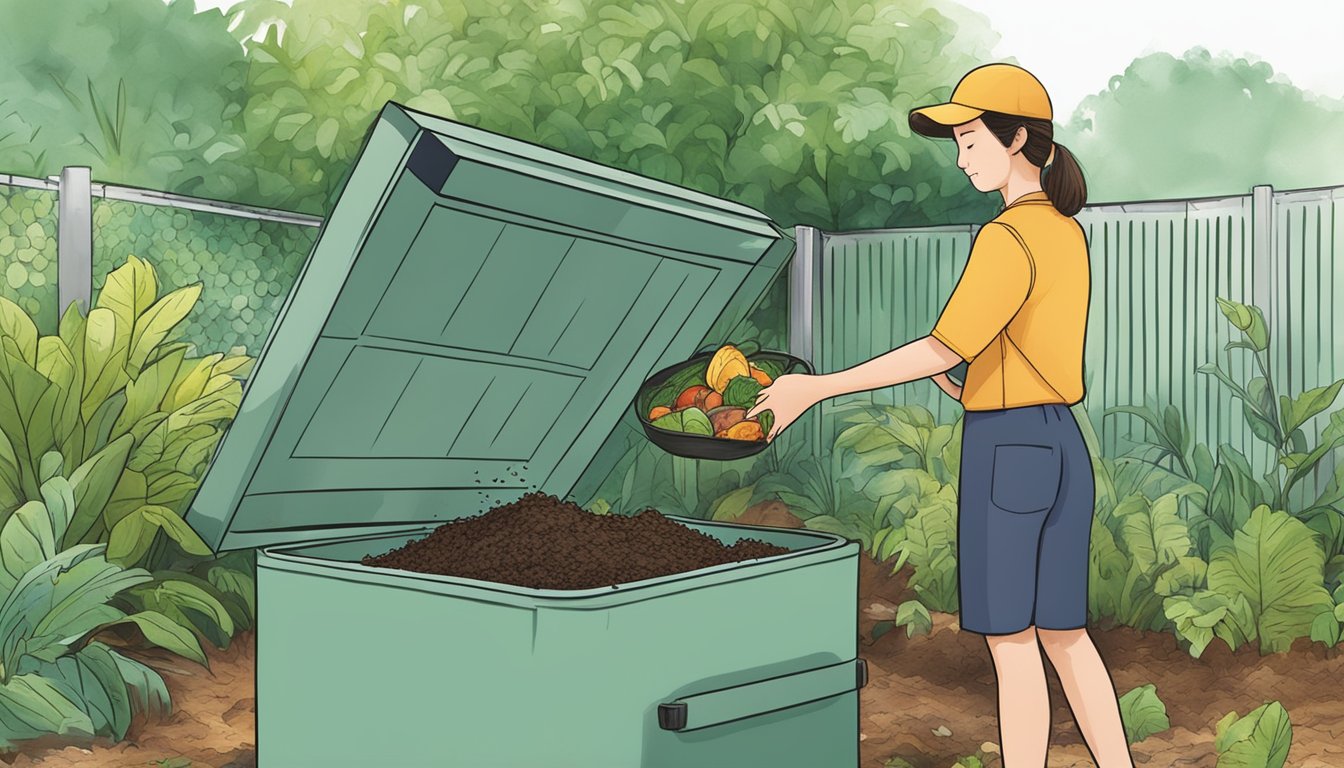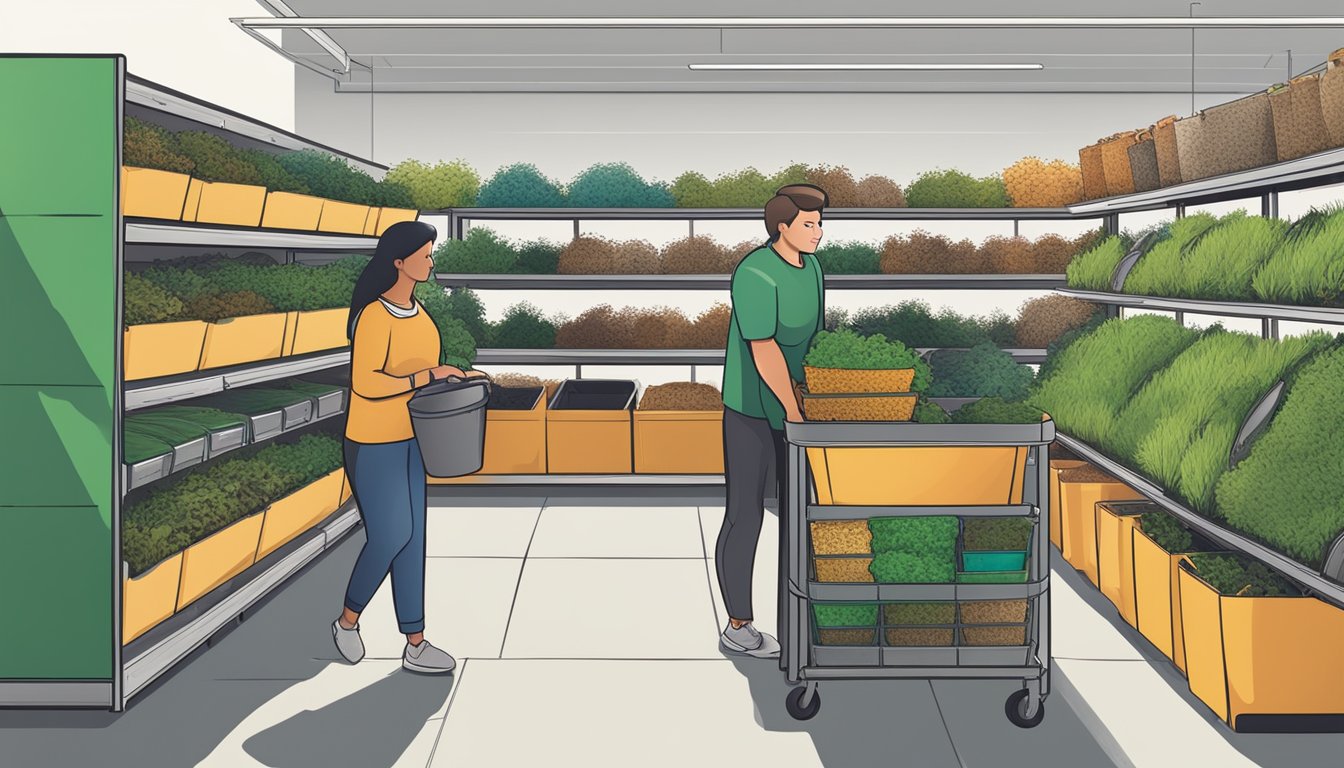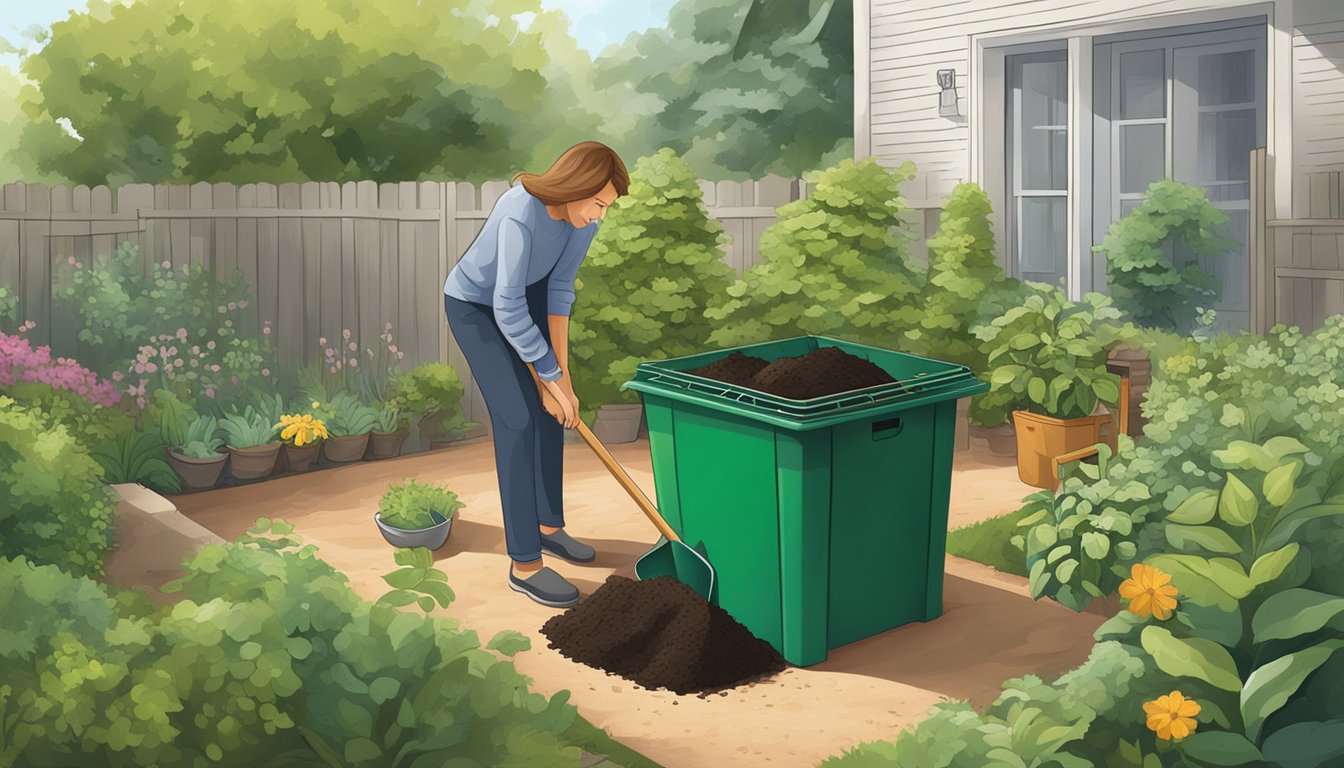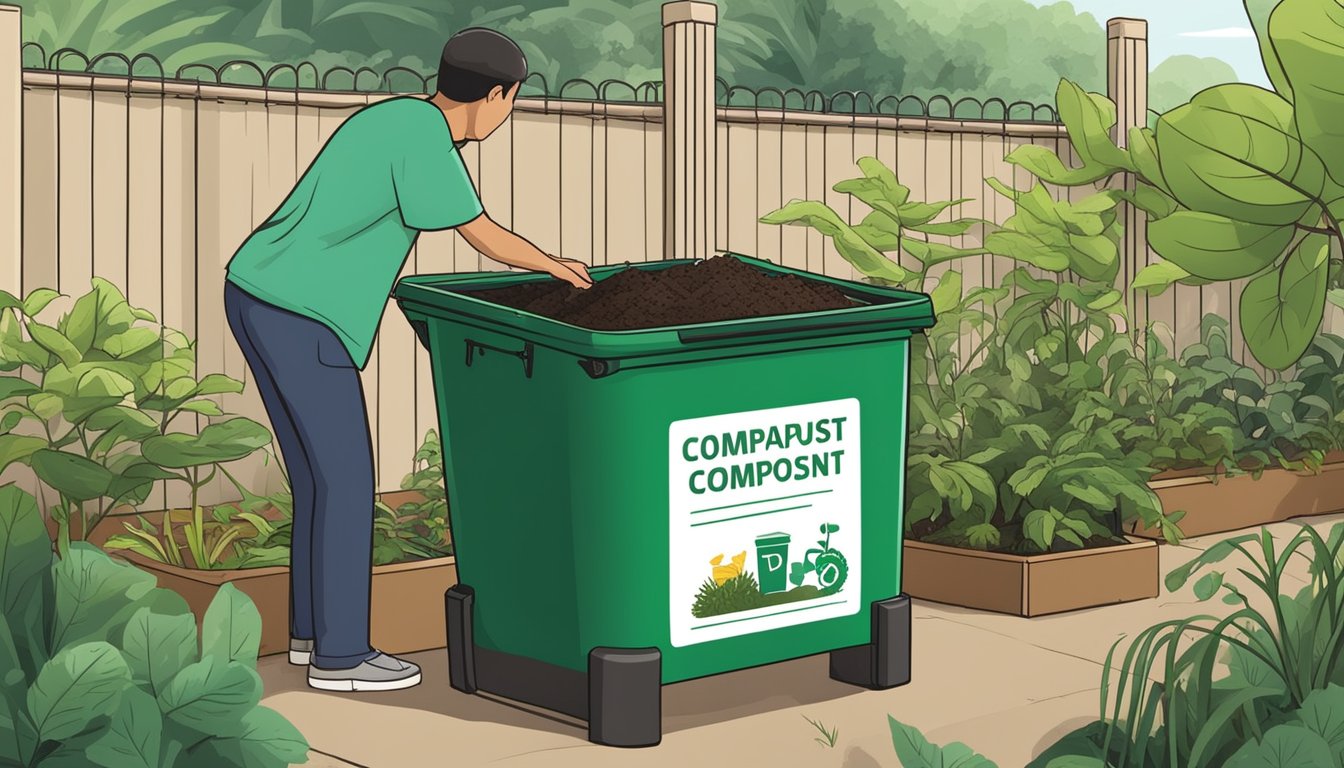If you’re looking to reduce your carbon footprint and contribute to a more sustainable future, composting is a great place to start. Not only does it reduce the amount of waste you produce, but it also produces nutrient-rich soil that you can use for your plants. In Singapore, composting is becoming increasingly popular, with more and more people investing in compost bins for their homes.

When it comes to choosing the right compost bin for your needs, there are a few things to consider. First and foremost, you’ll want to think about the size of the bin. If you have a small apartment or limited outdoor space, a smaller bin may be more suitable. You’ll also want to consider the type of compost bin you want, whether it’s a tumbling composter, a worm bin, or a traditional compost bin.
Once you have your compost bin, it’s important to master the basics of composting. This includes knowing what materials to add to your compost bin (such as fruit and vegetable scraps, coffee grounds, and eggshells), how often to turn your compost, and how to troubleshoot common issues. With a little bit of practice, you’ll soon be producing nutrient-rich soil that will help your plants thrive.
Key Takeaways
- Composting is a great way to reduce waste and produce nutrient-rich soil for your plants.
- When choosing a compost bin, consider the size and type of bin that will work best for your needs.
- Mastering the basics of composting, such as what materials to add and how to troubleshoot issues, is key to producing high-quality compost.
Choosing the Right Compost Bin

If you’re looking to buy a compost bin in Singapore, there are a few things to consider before making your purchase. Here are some key factors to keep in mind when choosing the right compost bin for your needs.
Assessing Compost Bin Types
There are several types of compost bins available, including vermicompost, bokashi, stainless steel, and plastic. Vermicompost bins use worms to break down organic matter, while bokashi bins use a fermentation process. Stainless steel bins are durable and long-lasting, while plastic bins are more affordable and portable.
Key Features to Consider
When choosing a compost bin, it’s important to consider the size, durability, and eco-friendliness of the bin. Look for a bin that comes in different sizes to suit your needs and one that is made from eco-friendly materials. Durable bins are essential for Singapore’s warm and humid climate, as they need to withstand the elements.
Where to Buy Compost Bins
There are several places to buy compost bins in Singapore, including Greenspade, Soil Social, and World Farm. These retailers offer a range of compost bins in different sizes and materials. You can also find compost bins online, which may offer more variety and convenience.
Compost Bin Setup and Placement
Once you’ve chosen your compost bin, it’s important to set it up correctly and place it in the right location. Follow the instructions provided with your bin to ensure proper setup. Place your bin in a warm, shady spot with good drainage and airflow. This will help to promote the breakdown of organic matter and prevent unpleasant odours.
Overall, buying a compost bin in Singapore is a great way to reduce waste and create nutrient-rich soil for your garden. With a little research and consideration, you can find the right compost bin to suit your needs and budget. So go ahead and start composting – your garden (and the environment) will thank you!
Mastering Composting Basics

Composting is an excellent way to recycle organic waste and turn it into nutrient-rich soil for your garden or potted plants. By understanding the composting process, you can create a healthy environment for your plants while reducing waste.
Understanding Composting Process
Composting is a natural process in which microorganisms break down organic matter into a nutrient-rich soil amendment. The process requires a balance of carbon and nitrogen-rich materials, air, water, and microorganisms. The carbon-rich materials are also known as “browns”, while the nitrogen-rich materials are known as “greens.”
What to Compost
You can compost a wide range of organic materials, including fruit and vegetable scraps, dried leaves, grass, weeds, eggshells, hair, and coffee grounds. However, it is essential to avoid adding cooked food, meat, and dairy products to your compost pile as they can attract pests and create unpleasant odours.
Maintaining the Right Balance
To maintain the right balance of carbon and nitrogen, you should aim for a ratio of 25 to 30 parts carbon to one part nitrogen. Browns, such as dried leaves and twigs, provide the carbon, while greens, such as fruit and vegetable scraps, provide the nitrogen. It is also essential to keep your compost pile moist and aerated to promote the growth of microorganisms.
Troubleshooting Common Issues
If you notice that your compost pile is not breaking down as quickly as you would like, it may be due to a lack of moisture or air. You can add more water or turn the pile to increase airflow. If your compost pile is attracting pests, you can cover it with a layer of browns to discourage them.
By mastering the basics of composting, you can create a healthy environment for your plants while reducing waste. With a little effort and patience, you can turn your kitchen scraps and yard waste into nutrient-rich soil that will help your garden thrive. So why not get started today and enjoy the benefits of composting? It’s an affordable and eco-friendly way to enhance your gardening experience.
Frequently Asked Questions

What’s the best type of compost bin for a small flat in Singapore?
If you live in a small flat in Singapore, you may not have a lot of space to spare for a compost bin. However, there are still plenty of options available to you. A small, countertop compost bin is a great choice for those with limited space. These bins are typically made of plastic or stainless steel and can be easily kept on your kitchen counter. They are also affordable and easy to use.
How can I get started with composting in my HDB flat?
Composting in an HDB flat may seem daunting, but it’s actually quite easy. The first step is to choose a compost bin that suits your needs. You can purchase a compost bin online or from a local gardening store. Once you have your bin, start collecting food waste and other organic materials, such as leaves and grass clippings. Add these materials to your bin and mix them together regularly. Over time, the materials will break down and turn into nutrient-rich compost that you can use in your garden.
Where can I find a top-notch electric compost bin in Singapore?
If you’re looking for an electric compost bin in Singapore, there are several options available to you. One popular brand is the Vitamix FoodCycler, which is available online and in select stores. This electric compost bin is compact and easy to use, making it a great choice for those who want to compost without a lot of fuss.
Are there any local compost collection services available in Singapore?
Yes, there are several local compost collection services available in Singapore. These services collect food waste from households and businesses and turn it into compost that can be used for gardening and landscaping. Some popular compost collection services in Singapore include ComCrop and UglyFoods.
Can you recommend an urban composter suitable for Singapore’s climate?
If you’re looking for an urban composter that is suitable for Singapore’s climate, consider the Bokashi composting method. Bokashi composting is a simple and effective way to compost food waste in an urban environment. It uses a special mix of microorganisms to break down food waste quickly and efficiently, without producing any unpleasant odours. Bokashi composting is also ideal for Singapore’s climate, as it can be done indoors and doesn’t require a lot of space.
What are the benefits of using a Bokashi bin for composting in Singapore?
Using a Bokashi bin for composting in Singapore has several benefits. First, it is a fast and efficient way to compost food waste. Second, it is an odourless and low-maintenance method of composting. Third, Bokashi compost is rich in nutrients and can be used to fertilize plants and improve soil quality. Finally, Bokashi composting is an eco-friendly way to dispose of food waste, as it reduces the amount of waste that ends up in landfills.




